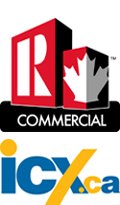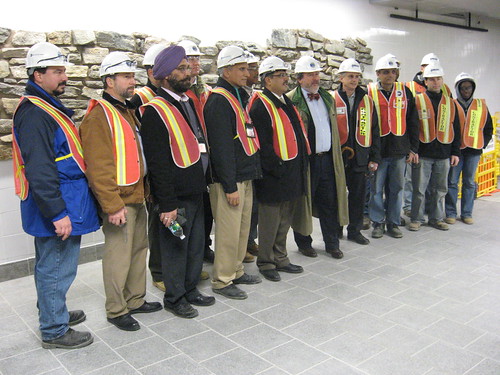Syndicated Post by Martin Shultz
You want to buy a business now. You believe that market conditions in your target industry have bottomed and are most likely to improve. You need a creative strategy that will allow you to satisfy wants and needs of prospective business sellers, but still not expose you and your capital to too much risk if your timing is wrong. In summary you want the best of both worlds.
Yours is not an unreasonable request. And there is a proven and much used creative strategy that both buyers and sellers have used to bridge these kinds of gaps for decades. It had probably fallen into disuse during the expansionary period leading up to the current severe recession. It was not needed very often because of easy availability of relatively cheap debt, and because most people believed the good times would continue to roll. And most who didn't believe this weren't going to step into the path of an oncoming freight train by buying a business.
The circumstances that have brought about the need for this creative strategy are different than those common during this last expansionary period. Now there is uncertainty about future prospects. Both in terms of direction and in terms of amount. This disparity will tend to create a significant gap between the future expectations of most businesses for sale, in the minds of current owners, and prospective buyers. And the respective views of the future may not even be expressed explicitly. They may be implicit in their respective views of the underlying value, and related price of a business.
Sellers understandably want to ignore or seriously discount the results on their respective businesses of the past couple of years. They want to revert to the industry multiples that had previously been used as rules of thumb for valuations in their industry. And in doing so, either want to average the past few years cash flow results, and apply the multiple on the average, or something similar.
As a buyer, you have a different perspective. You would certainly like to get a bargain, and buy a really great business at a considerable discount. But in the real world, that doesn't happen very often. So you need a creative strategy to get you to a situation that is almost as good. And that is a situation where you won't lose money if you are wrong. This is consistent with Warren Buffet's rule number one for investing. It is "Don't Lose Money". (And as information rule number two is remember rule number one.) Or at the very worst, you will lose money but you know how much, and are prepared to risk that amount.
Let's get down to basics. You are evaluating a business that you are thinking of buying. You may be having difficulty justifying the asking price. It is not consistent with your view of the future. You may not be as confident as the current owner about the specifics of future expectations for the performance of the business. You may disagree with the timing of the cash flows his price implies. You may also disagree with the actual size of the annual cash flows his price implies. And there may be other issues including expectations for future interest rates. All of these have caused you to believe that at the asking price you will not achieve your expected return on capital. Or even worse, cause you to lose money. And worst of all, it is difficult to quantify the loss you could be exposed to. It may be time for some creative buying.
In these circumstances, many buyers will work diligently to convince the seller of the error in his thinking. In some situations that may work. But there are other factors working against you. The seller may have become fixated on a price, and this fixation will close his mind to your argument. An old uncle of mine used to say "convince a woman against her will, she's of the same opinion still". I am certain he was not the author of this what we would now consider to be a sexist remark, but used it frequently. He failed to realize that it applies equally to men and women. So try as you might, your attempts at reason and logic may well fail.
There are other details that will come into play as well. And they are very important to enhancing the buyer's willingness to accept part payment in the form of an earn out out (sic). So you need to have the details clearly understood and incorporated into a formal agreement. Things like what triggers the obligation to pay, and when payment becomes due. You will need professional help to accomplish this, either from a lawyer or accountant experienced in working with this concept. Make sure that the agreement contemplates the seller being provided with some right to audit so long as you have earn out related obligations to him. That way you should avoid any feeling on his part that he is being cheated. Proactively offering the right to audit will help you sell him on the concept in the first place. It will show him that your intentions are strictly honest.
This type of creative strategy is one that gets the seller what he wants or close to it. Provided that future events unfold in accordance with his stated or implied view of them. But it saves you from paying for something that may not take place, until it does happen. It effectively saves you from paying today, for a future that you don't experience, and one that you don't benefit from. You will be in a position of agreeing to pay for these future results, and paying for them, as you experience their benefit.
Will this work in every situation? Not likely. But proposing a creative strategy like this will demonstrate to the buyer that you agree with his price, so long as it is justified by results. Nothing works in each and every case. But you have nothing to lose by proposing it, particularly when it is obvious to you that you will have a disagreement on price without it. What is the worst that can happen? The seller will say no. And that is not fatal. What is more likely is that the seller will ask questions for clarification. Providing you with an opportunity to explain and discuss the situation. Be flexible in considering his input. So long as it is consistent with your risk management approach.
You may have to give a little on price in order to properly manage your downside risk. You may end up paying a bit more than you originally wanted to pay. But does that matter when you are paying with income that exceeds your original expectations? And only from this incremental income. It is not unlike paying commission on a sale that you wouldn't have made without the efforts of the individual entitled to the commission. You will be paying purely for results. At least on the earn out portion. Consider the slight increase to be the premium that you are paying to insure your risk.
For more actionable information that will help you in assessing a business buying opportunity take a look at the information at
http://www.selling-a-business-without-stress.com/freereport.html. Although it is written to help sellers of businesses, it will work well for you. It is written from the perspective of what buyers should look for in a business, and accordingly what business owners should provide.
The author, Martin Schultz is a leading authority in preparing a business for sale and the publisher of the free information site
http://www.selling-a-business-without-stress.com which provides actionable information about selling a business. His experience includes over 20 years evaluating acquisitions including as one of the founding shareholders of a publicly traded company that grew through acquisition. (After merging with another business of similar size, the merged company now trades on the NYSE.) His other credentials include an MBA from a highly respected North American university, followed by over 30 years of business experience. Martin is now an author and business consultant in corporate finance.
Article Source:
http://EzineArticles.com/?expert=Martin_Schultz
Still confused about an 'earn out'? Stay tuned and, in an upcoming article, I'll get into the explanation of the mechanics of this creative business purchase and sale option! -
Doug
Read more...


























